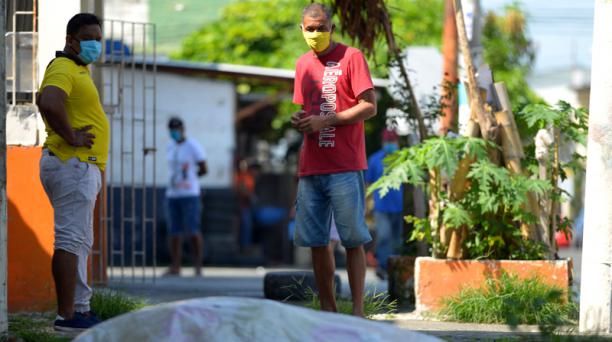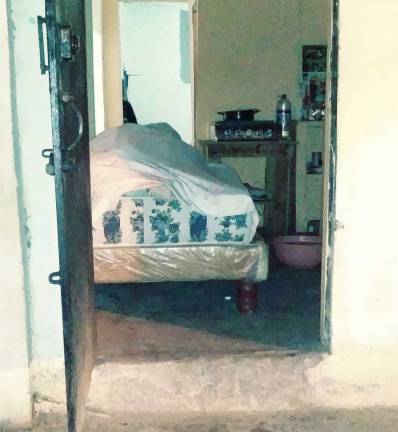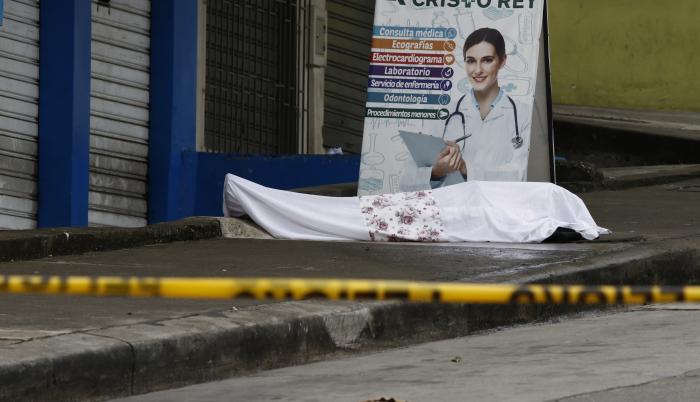Things are bad in Ecuador. The small South American country is getting slammed by Coronavirus. I typically write about stories in El Salvador (the country in which I reside, different from Ecuador). However, the story of Ecuador is sweeping through news outlets all over Central and South America. The story represents somewhat of an ominous reminder of the future that other Latin countries will inevitably soon face.
Families and the local government are under an unbearable amount of strain due to Covid-19 and it’s important that Ecuador’s story is told. The stories coming from Ecuador are symbolic of the wider reaching problems facing Latin countries and underdeveloped countries across the globe: health care. While United States Governors wrestle over the few remaining ventilators, Latin America is bracing for the worst. Ventilators are only a dream.
Ecuador has a population of approximately 16.2 million (World Bank) and is situated directly west of Colombia. At the time of writing this (Saturday April 4th), there are 3,368 Cases, 145 Deaths and 65 Recoveries.
Reportedly, approximately half of the deaths in the country are happening in Guayaquil, Ecuador’s largest city and largest port. Guayaquil has become the epicenter of the pandemic in Ecuador. Families of the deceased are terrified to contract the virus themselves, they are at high risk of transmission, they are ill equipped with protective supplies and they have been directed not to dispose of the bodies themselves (I believe, according to the WHO).
Local health response services are running behind as they work around the clock.
Scared family members often wrap the bodies in sheets or plastic and place the bodies in the streets. It may take days, or even weeks in some cases before the bodies are picked up. Worse, the tropical heat hastens the decomposition process, essentially leaving unsettling sights and smells throughout the streets.

Photo from elcomercio.com
As the pandemic sweeps through the region, the burden of removing the bodies is growing. Currently there is a day crew and a night crew that handles the removal of the bodies. However, with the death count rising it’s troubling to consider what will happen in the coming days and weeks of the Coronavirus pandemic.
“We are exhausted, saturated with so many dead, we no longer have rest, we barely sleep five hours and sometimes less, we collect dead after dead, that we have even lost count of how many we raise in a day“ said an officer in charge of this complex task.
A big challenge is the dangers associated with removal of the corpses. They’re dangerous for anyone to handle, including equipped personnel. Handling so many dead in the sweaty tropic temperatures puts workers at an incredibly high risk of transmission. Additionally, police are unable to perform their duties properly in reporting the deaths because they don’t have adequate protective gear to speak with all of the families of the deceased. Therefore, records and information is getting disorganized (and potentially lost) amid the health crisis.
Families Stuck With Bodies In The Home

Image source: extra.ec
Perhaps the most unsettling scenarios involve cases where the families suffer not only from the death of their loved ones, but also the anguish of being unable or unwilling to remove the body outside into the street. This happened with the body of Javier Carrera Paredes, whom died from respiratory arrest.
“We are afraid to go down [to where the body is], the stench is unbearable. I asked for help to collect my uncle’s body, but nobody helps us. We have placed the body in sheets” said a nephew of the deceased.
These tragedies are among a growing number of stories that are affecting Ecuador as the Coronavirus pandemic spreads through the small country.
As a final note
In El Salvador (the country I reside in) we are on lockdown. At the moment, the vast majority of the population here is respecting the lockdown. There are have only been 3 deaths from Coronavirus in El Salvador, however, mostly everyone is aware that eventually the case numbers will rise rather dramatically. We are all trying to prevent that from happening.
As I previously wrote about, the government of El Salvador is rapidly doing everything it can to prepare hospitals and medical facilities in the major cities and surrounding areas. The clock is ticking and we all worry about being in the same situation as Ecuador. The possibility of that is very high for us.
My heart goes out to those in Ecuador.
Main photo source: expreso.ec


